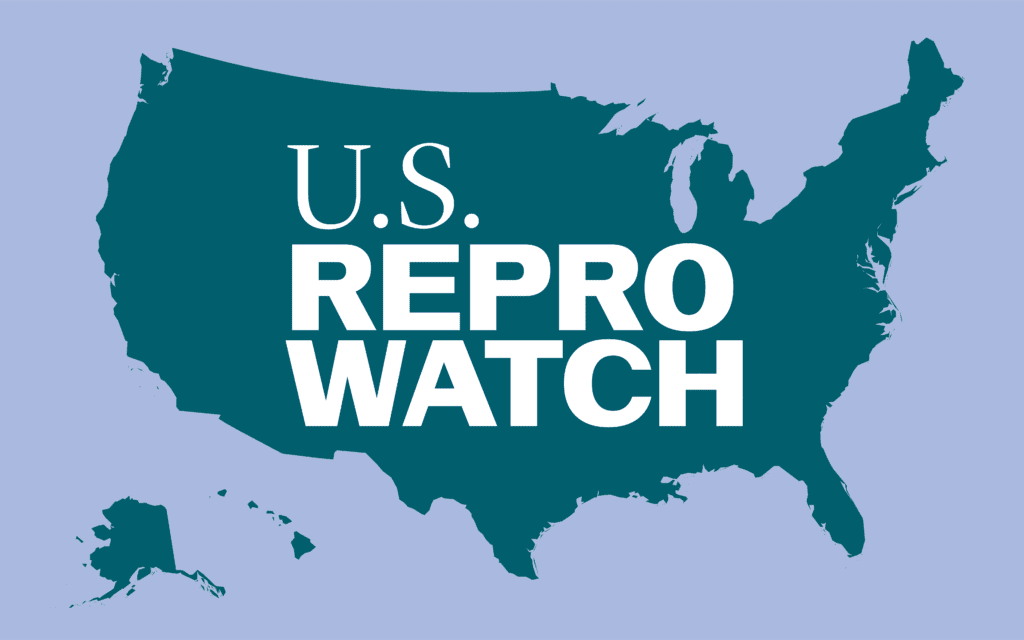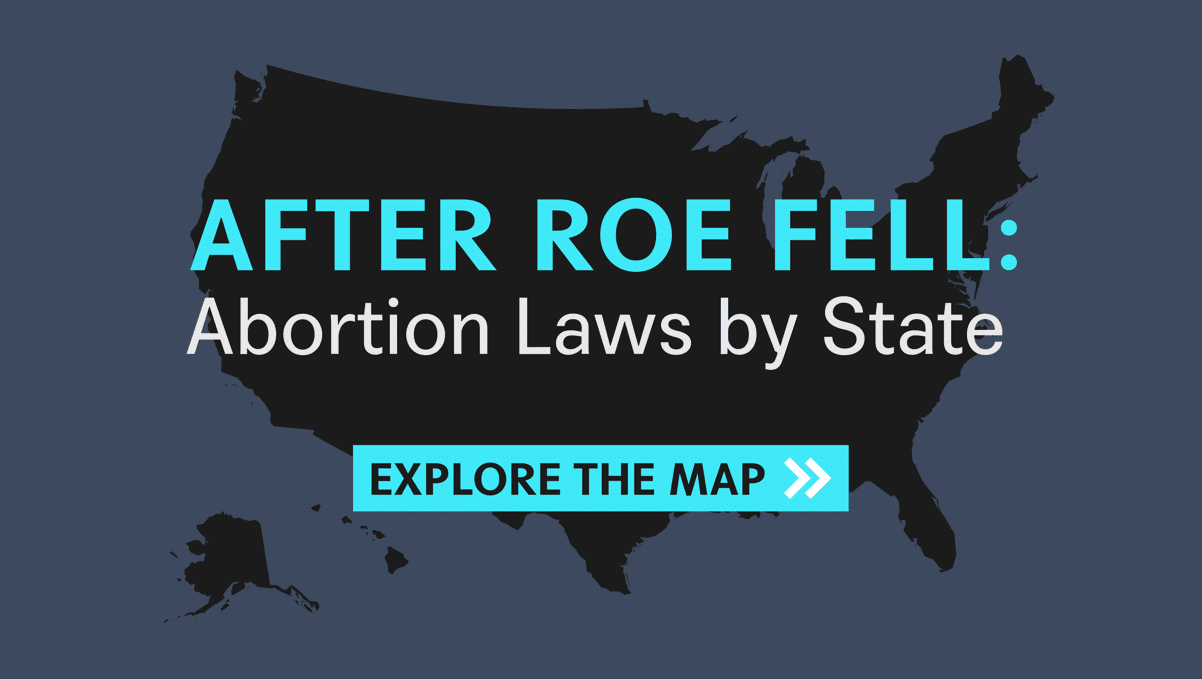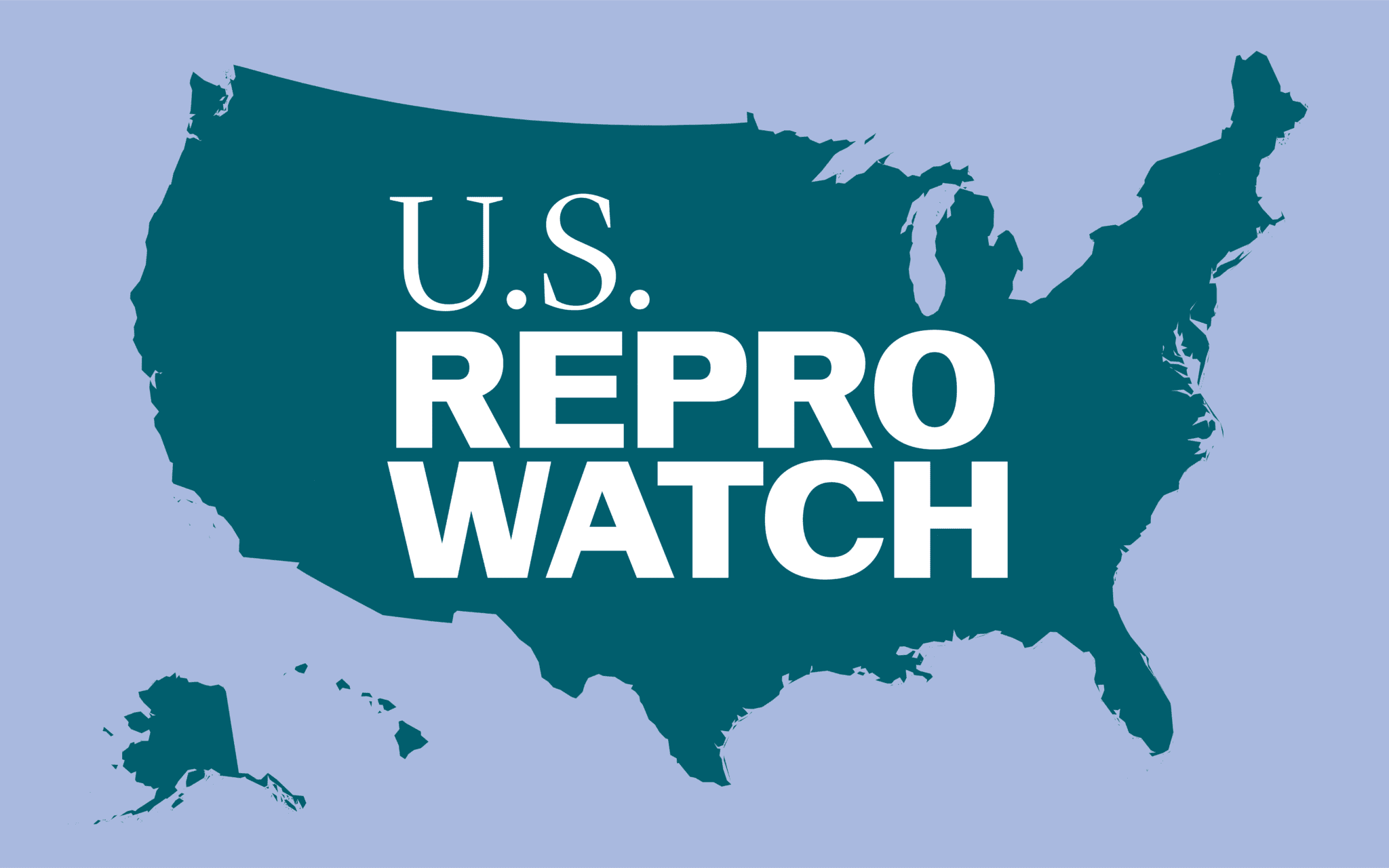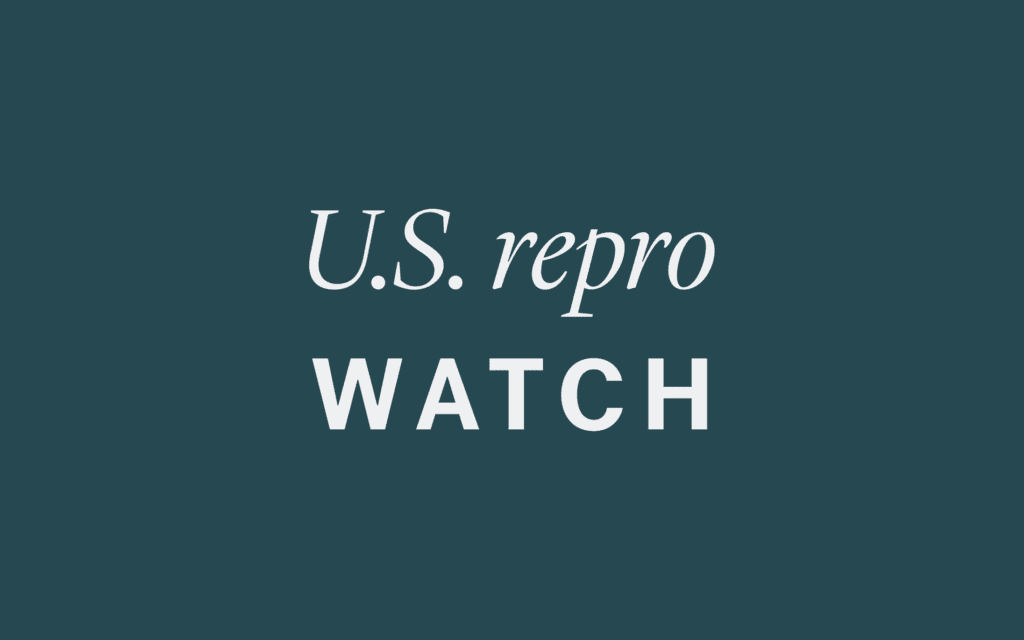U.S. Repro Watch, July 5
New protections for pregnant workers, Indiana criminalizes abortion, and other top news on U.S. reproductive rights.

U.S. Repro Watch provides periodic updates on news of interest on U.S. reproductive rights. Here are four recent items you won’t want to miss:
1. A new federal law expanding protections for pregnant workers and new parents went into effect.
- The Pregnant Workers Fairness Act—passed with bipartisan support in 2022—requires employers to provide workers with “reasonable accommodations” related to the entire period of their pregnancy, including during fertility related treatments, childbirth, and postpartum recovery.
- Accommodations could include flexible schedules, time off after childbirth, and being excused from strenuous activities. The law is expected to benefit nearly 3 million pregnanct people each year who are employed during their year of pregnancy.
Read more.
Which 14 states have criminalized abortion?
Find out with this interactive map, updated in real time.
2. Indiana becomes the 14th state to criminalize abortion after the state supreme court upholds the state’s total ban.
- The state’s high court ruled June 30 that the ban does not violate the state constitution, overturning a lower court’s ruling to block the law.
- However, the court did recognize that the state constitution protects the right to abortion to protect a pregnant person’s health and life.
3. Several reproductive health-related laws have or will soon take effect at the state level.
- In North Carolina, a federal judge allowed the state’s 12-week abortion ban to go into effect, but temporarily blocked a provision requiring doctors to document early pregnancies via ultrasound before prescribing a medication abortion.
- Arizona Gov. Katie Hobbs signed an executive order curtailing local prosecutors’ power to criminally charge abortion providers. The order transfers that authority to the state’s Attorney General, who has vowed not to prosecute abortion providers.
- A Mississippi law expanding postpartum Medicaid coverage took effect July 1. It expands Medicaid coverage from two to 12 months after childbirth.
The Center’s Fight Forward for U.S. Abortion Rights and Access
Find out how you can help #TheForwardFight today.
4. In international news, Malta lawmakers passed abortion legislation—but it will do little to alleviate risks to pregnant people’s health and lives.
- Malta has long had one of the strictest abortion laws in the world. While the new legislation technically brings an end to the country’s total ban, human rights and public health advocates lambasted the bill. The Center expressed concern that the amended law will entrench harms of restrictive abortion law.
- An earlier draft of the legislation would have permitted access to abortion when a pregnant person’s health and life are at risk. However, lawmakers backtracked at the last-minute, amending the bill to only allow abortion if the person’s life is at immediate risk. That person would be forced to get consent from three doctors in order to get an abortion.
Did you know?
In “Days of desperation: the diary of a woman forced to flee Texas for an abortion,” The Guardian published the pregnancy journal of Lauren Miller, one of the 13 women who joined the Center’s lawsuit against the state of Texas after being denied an abortion despite dangerous pregnancy complications. The journal details her harrowing journey, from the joy of learning she was pregnant with twins to the anguish of being forced to flee the state for a life-saving abortion.
While preparing to travel to Colorado to obtain an abortion, Lauren wrote in her diary: “I can’t have my own doctor who I trust to help me through this, I have to rely on a stranger. I just want to be able to stay at home… There’s no dignity in this process.” Lauren published her pregnancy journal to expose the suffering and fear of being pregnant in a state like Texas.
Coming Up
July 18: Hearing on abortion rights measure in Missouri.
- The Missouri Supreme Court will hear arguments over the estimated cost of a ballot measure to restore abortion rights in the state. The state Attorney General has refused to sign off on the state auditor’s cost estimate, delaying the approval process for the constitutional amendment.
- The hearing will begin at 3 p.m. CT/4 p.m. ET on July 18.
U.S. Repro Watch
Read previous U.S. Repro Watch posts.
July 19: Hearing on Nebraska’s 12-week abortion ban.
- A Nebraska state court will hear oral arguments over a recently enacted law restricting both abortion and gender-affirming care. The 12-week abortion ban included in the law is currently in effect, while the ban on gender-affirming care for young people takes effect in October.
- The plaintiffs argue that the law violates a state constitutional requirement that legislative bills be limited to a single subject, and have asked the court to block the law while the case proceeds.
- The hearing will begin at 10 a.m. CT/11 a.m. ET on July 19.




